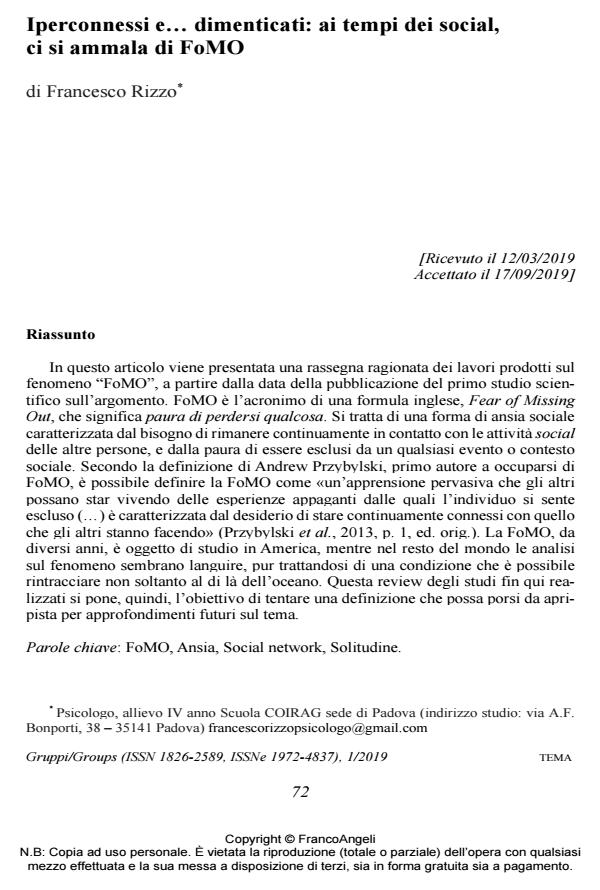Hyperconnected but.. forgotten: in social days, you get sick of FoMO
Journal title GRUPPI
Author/s Francesco Rizzo
Publishing Year 2019 Issue 2019/1
Language Italian Pages 14 P. 72-85 File size 200 KB
DOI 10.3280/GRU2019-001006
DOI is like a bar code for intellectual property: to have more infomation
click here
Below, you can see the article first page
If you want to buy this article in PDF format, you can do it, following the instructions to buy download credits

FrancoAngeli is member of Publishers International Linking Association, Inc (PILA), a not-for-profit association which run the CrossRef service enabling links to and from online scholarly content.
This article presents a reasoned review of the works produced on the "FoMO" phenomenon, starting from the date of the first scientific paper. FoMO stands for Fear of Missing Out. It is a specific form of social anxiety explained by the need to remain in contact with other people and the fear of being excluded from an event or social context. According to the definition of Andrew Przybylski, the first author to deal with FoMO, it is possible to define it as «a pervasive apprehension that others might be having rewarding experiences from which one is absent (..) is characterized by the desire to stay continually connected with what others are do-ing» (Przybylski et al., 2013, p. 1). In the US, many efforts were done on FoMO, while the same cannot be said for the rest of the world. Nevertheless, this is a con-dition that we can be observed everywhere. This review aims at defining the field for future insights on the subject.
Keywords: FoMO, Anxiety, Social network, Loneliness.
Francesco Rizzo, Iperconnessi e.. dimenticati: ai tempi dei social, ci si ammala di FoMO in "GRUPPI" 1/2019, pp 72-85, DOI: 10.3280/GRU2019-001006